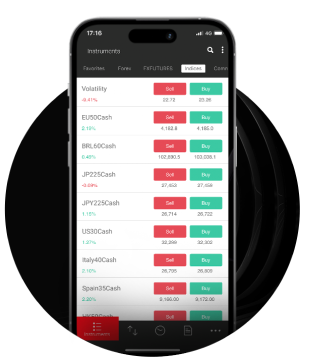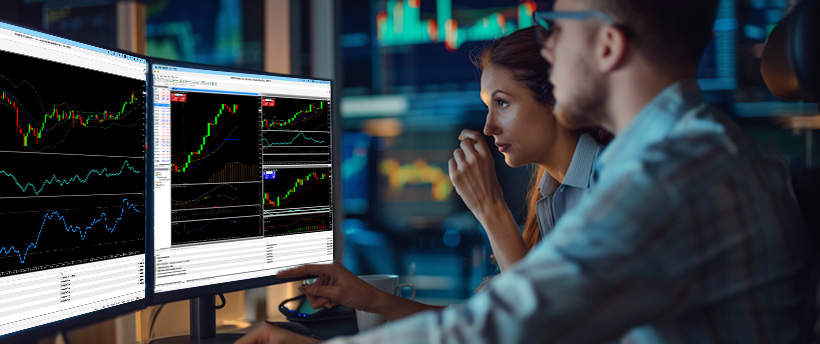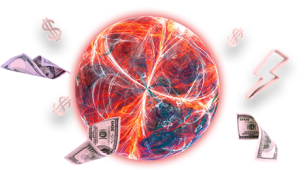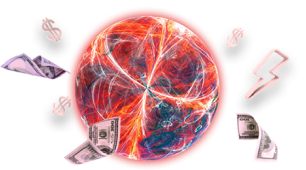Comprometerse con la mejora continua en el trading de Forex requiere más que simplemente crear mejores estrategias y realizar análisis de mercado. También implica tener la mentalidad correcta y mantener la calma cuando el mercado es impredecible. Cada operación que realizas está influenciada por el miedo, la avaricia o la confianza; gestionar estas emociones puede ayudarte a mantenerte enfocado y adaptarte a las condiciones cambiantes del mercado.
La Montaña Rusa Emocional del Trading de Forex
Imagina esto: realizas una operación y observas cómo el mercado se mueve a tu favor. A medida que crece la emoción, el precio de repente se mueve en tu contra. Cierras la operación temprano para evitar una pérdida cuando entra el pánico. El mercado se revierte nuevamente unos momentos después, y te das cuenta de que si hubieras sido paciente, podrías haber obtenido una ganancia.
Frustrado, te precipitas en otra operación para recuperarte, solo para terminar de nuevo donde comenzaste. ¿Te suena familiar? Aunque muchos traders muestran este patrón emocional, gestionar estas reacciones puede ayudarte a tomar decisiones más inteligentes y lograr mejores resultados.
¿Qué es la psicología del trading de Forex?
El crecimiento en el trading a largo plazo requiere un sólido dominio de la psicología del trading. La psicología del trading de Forex es una parte esencial. Se refiere al estado mental y emocional de un trader al tomar decisiones. Es un elemento crucial para que los traders lo comprendan, ya que puede tener una influencia positiva o negativa en los resultados del trading.
Emociones comunes como el miedo o la codicia a menudo conducen a la toma de decisiones irracionales. El miedo es una emoción humana natural que puede llevar a los traders a salir de las operaciones demasiado pronto, haciéndoles perder posibles ganancias, o incluso impedirles entrar en operaciones por completo. Por otro lado, la codicia puede hacer que los traders mantengan posiciones perdedoras con la esperanza de una reversión, lo que a menudo resulta en pérdidas aún mayores.
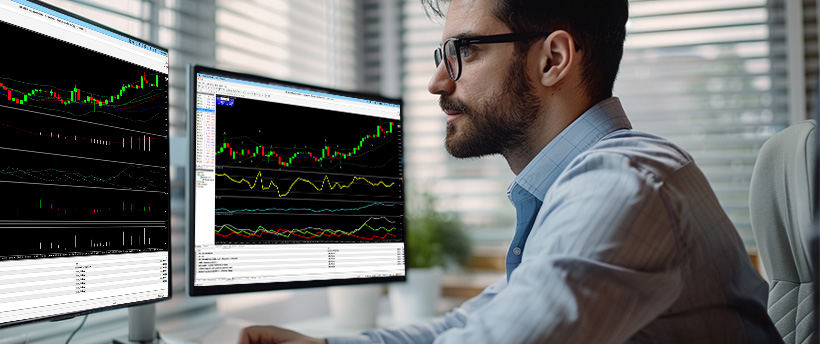
Emociones que impulsan las decisiones en el trading de Forex
Los traders experimentan una variedad de emociones a diario, las cuales pueden influir en sus pensamientos y en cómo toman decisiones. Sin embargo, para muchos traders, las desventajas de la psicología del trading pueden superar los beneficios. Esto puede manifestarse al duplicar posiciones perdedoras cuando el miedo a concretar una pérdida se convierte en codicia, o al cerrar posiciones perdedoras demasiado rápido cuando el miedo a la pérdida se vuelve demasiado intenso.
Codicia
Los traders, como cualquier otra persona, a menudo quieren más. Algunos persiguen mercados de rápido movimiento o asumen demasiados riesgos. En el proceso, pueden omitir técnicas básicas de gestión de riesgos o mantener operaciones por demasiado tiempo, poniendo en riesgo sus cuentas.
Miedo
El miedo puede hacer que los traders duden en asumir riesgos o los lleve a salir de las operaciones demasiado pronto, preocupados por grandes pérdidas. En los mercados bajistas, este miedo se intensifica, y los traders a menudo actúan impulsivamente para cerrar posiciones. Cuando el miedo se convierte en pánico, la venta emocional a menudo provoca liquidaciones generalizadas.
Arrepentimiento
Negociar en mercados de rápido cambio puede ser un desafío. Después de una pérdida o una oportunidad perdida, un trader puede entrar en una operación por arrepentimiento. Por ejemplo, podría esperar demasiado tiempo para comprar EUR/USD durante un gran movimiento, y luego precipitarse cuando el precio ya ha subido. Este miedo a perderse oportunidades, o FOMO, a menudo conduce a un mal timing, y el precio puede revertirse rápidamente.
Cómo controlar tus emociones en el trading de Forex
No existe una fórmula única para gestionar las emociones, pero hay estrategias prácticas que pueden ayudarte a mantener el enfoque y tomar mejores decisiones.
Crea un plan sólido de trading de Forex
Escribe tus reglas de entrada y salida antes de comenzar a operar. De esa manera, cuando el mercado se vuelva volátil, ya habrás tomado las decisiones difíciles con anticipación. Un plan sólido reduce las dudas y evita que el miedo o la codicia tomen el control.
Gestione su riesgo
Nada pone tus nervios más a prueba que arriesgar demasiado. Las pérdidas no dolerán tanto y tendrás menos probabilidades de actuar por pánico si arriesgas una cantidad pequeña y fija en cada operación.
Usa órdenes de stop-loss
Los traders de Forex a menudo dependen de órdenes de stop-loss para que una sola operación mala no borre semanas de ganancias. Estas cierran automáticamente la posición a un tipo de cambio predeterminado. Independientemente de la estrategia de trading que uses, siempre establece un stop loss.
También puedes usar un stop-loss en combinación con un take profit para definir tu pérdida máxima y la ganancia deseada. Incluso si no estás monitoreando tu plataforma de trading, estas herramientas garantizan que tu operación se cierre al precio especificado.
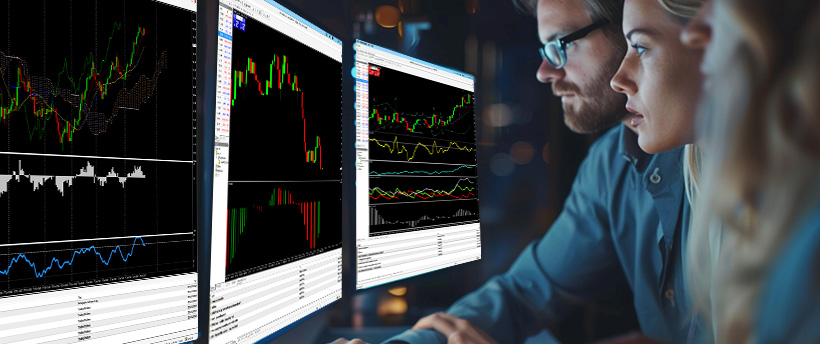
Acepta que las pérdidas son parte del juego
No todos los traders son expertos. Aceptar las pérdidas como parte normal del trading te ayuda a mantener la calma y el enfoque. En lugar de intentar recuperar las pérdidas, reflexiona sobre lo que salió mal y ajusta tu estrategia. Al inscribirse en un curso gratuito de trading de Forex en línea, los principiantes pueden aprender a gestionar las pérdidas sin dejar que sus emociones tomen el control.
Controla la codicia
Ganar algunas operaciones puede hacer que te sientas demasiado confiado. Podrías comenzar a asumir riesgos mayores de los que deberías. Una manera de evitar esto es establecer un objetivo de ganancias y ceñirte a él, en lugar de perseguir operaciones que parecen demasiado buenas para ser verdad. Asegurar las ganancias temprano significa que tendrás menos probabilidades de ver que una operación ganadora se vuelva en tu contra.
Mantenga un diario de trading
Mantener un diario de trading te obliga a anotar cada decisión, lo que facilita ver qué está funcionando realmente y qué te está costando dinero. Anota los detalles de cada operación: tu entrada y salida, por qué realizaste la operación, cómo resultó e incluso lo que estabas sintiendo en ese momento.
Cuando revisas tus notas, comienzan a surgir patrones. Quizás notes que con frecuencia sales del mercado demasiado pronto, incluso cuando todavía se mueve a tu favor, lo que indica falta de paciencia. O puede que observes que a veces te lanzas sin un plan claro, lo cual normalmente resulta contraproducente. Con el tiempo, el diario se convierte en más que un registro, siendo una herramienta que te muestra qué funciona, qué no y cómo ajustarlo.
Abra una cuenta demo
Comenzar con una cuenta demo es una buena idea si eres nuevo en el trading de Forex o estás probando una nueva estrategia. Al operar con dinero virtual a través de una cuenta demo, puedes probar diferentes estrategias y aprender cómo funciona el mercado sin arriesgar dinero real.
Antes de arriesgar dinero real, tiene sentido practicar en una cuenta demo: perfeccionarás tus habilidades, cometerás algunos errores y aumentarás tu confianza antes de operar en una cuenta real.
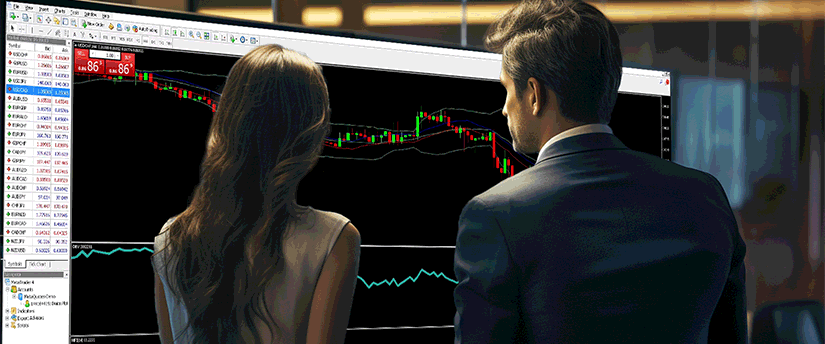
Conclusiones
Siempre habrá altibajos en la montaña rusa emocional del trading de Forex. El análisis de mercado y las estrategias son importantes, pero no te serán útiles si no puedes controlar tus emociones. Los traders a largo plazo generalmente tienen una estrategia, controlan cuidadosamente su riesgo y utilizan herramientas como órdenes de stop-loss o un diario de trading para mantenerse enfocados durante los momentos difíciles.
Al final del día, gestionar tu mentalidad es tan importante como leer los gráficos. La mayoría de los traders entra en pánico cuando el mercado se mueve bruscamente, pero si puedes controlar tus emociones, los movimientos repentinos de precios pueden jugar a tu favor.
Aviso legal:
Esta información no se considera asesoramiento de inversión ni una recomendación de inversión, sino una comunicación de marketing.
